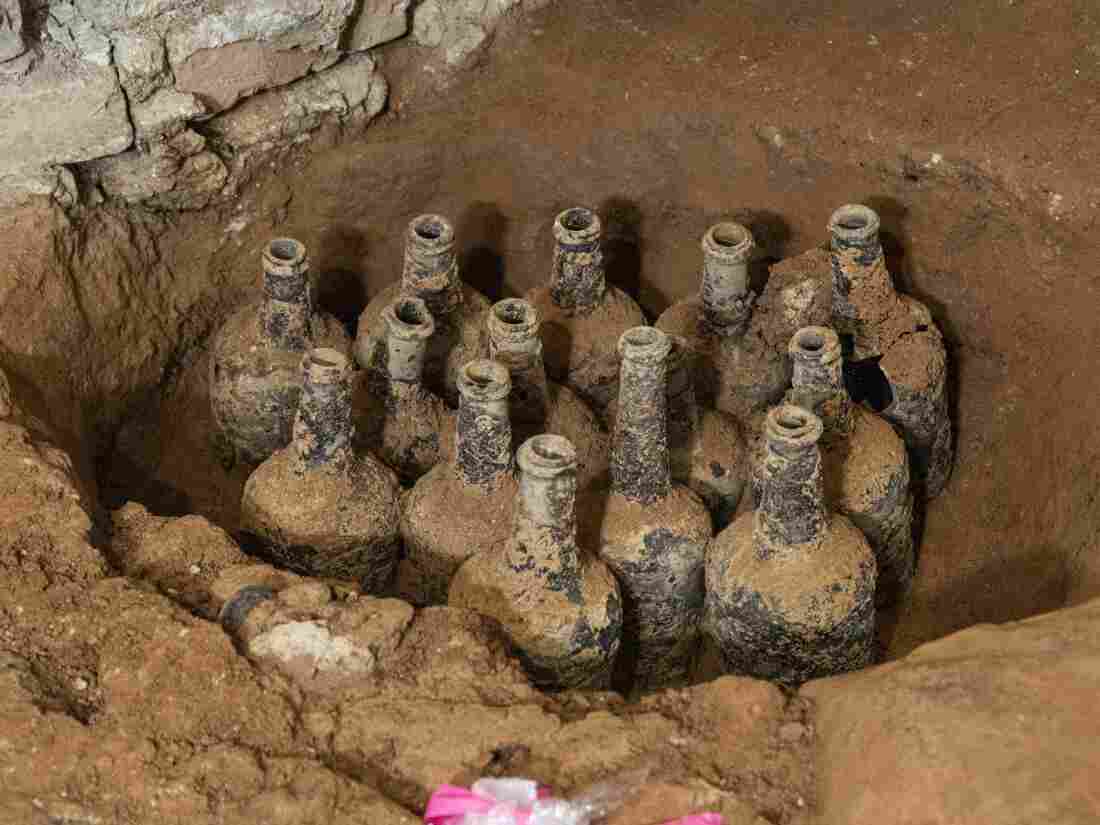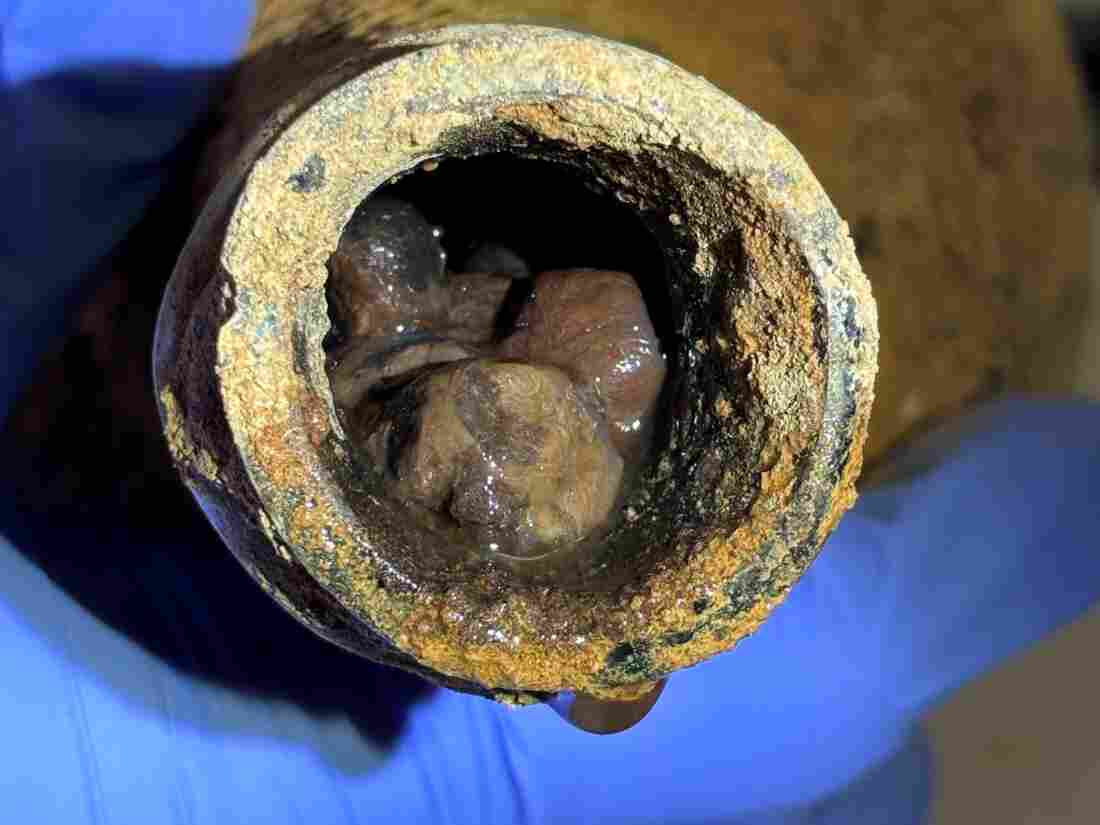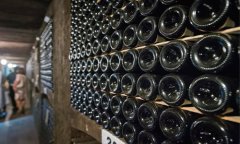
Archaeologists on a multi-year restoration project found 35 bottles of cherries and berries in five different pits in the Mount Vernon cellar. George Brown/Mount Vernon Ladies’ Association hide caption
toggle caption George Brown/Mount Vernon Ladies’ AssociationArcheologists at George Washington’s historic Virginia home have unearthed more than two dozen bottles of cherries and berries dating back to the 18th century in a particularly juicy find.
Officials first announced in April that they had discovered two glass jars of cherries, liquid and pits while excavating the cellar of Mount Vernon, the residence, plantation and final resting place of the nation’s first president.
Further sweetening the deal, last week they announced the discovery of 35 more fruit-filled vessels. Officials say 29 of the bottles are intact and contain “perfectly preserved cherries and berries, likely gooseberries or currants.”
History Archaeologist uncovers George Washington's 250-year-old stash of cherries
“To our knowledge, this is an unprecedented find and nothing of this scale and significance has ever been excavated in North America,” Mount Vernon President and CEO Doug Bradburn said in a statement.

A view of preserved cherries inside one of the bottles found at Mount Vernon. Mount Vernon Ladies’ Association hide caption
toggle caption Mount Vernon Ladies’ AssociationThe bottles, whose shapes are characteristic of styles from the 1740s and 1750s, were discovered in five storage pits throughout the cellar.
“These artifacts likely haven’t seen the light of day since before the American Revolution, perhaps forgotten when George Washington departed Mount Vernon to take command of the Continental Army,” Bradburn added.
That was in 1775.
Archaeologists revisited the site as part of a privately funded $40 million preservation project, aimed at ensuring Mount Vernon’s structural integrity and slated for completion in 2026 — just in time for America’s 250th birthday.
Now, fresh off this well-preserved discovery, researchers hope that modern technology will allow them to learn more about the cherries and, by extension, the world from which they came.

National Records, Descendants Help Weave Stories Of George Washington's Slaves
Jason Boroughs, the principal archaeologist at Mount Vernon, called the discovery “beyond extraordinary.” He told NPR and WBUR’s Here & Nowin April that “intact 18th-century food remains is just not something that’s typically found.”
The cherries, he added, can serve as a window into the environment and cuisine of the period, as well as the entire Mount Vernon community — and not just the first first family.








